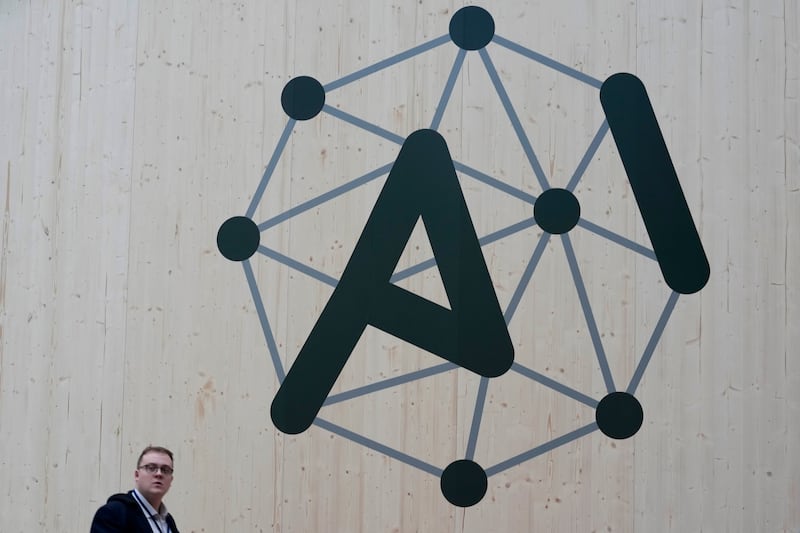The rise of artificial intelligence is transforming the workforce at a pace few imagined possible. Once thought immune, professions such as software development, legal analysis and even creative writing are now being reshaped — or replaced — by AI. The World Economic Forum predicts that 44% of workers’ core skills will be disrupted within just a few years. Entry-level positions, long the on-ramp for young professionals, are among the most vulnerable.
So where does that leave the next generation?
It leaves them standing at a crossroads: equipped with an education but unsure how to compete with machines that code faster, write cleaner and analyze deeper. And yet, leadership, empathy and character — unlike code — can’t be programmed. They remain uniquely human.
The future won’t be won by those who simply understand technology, but by those who can lead others through it.
Major firms increasingly agree. In a recent Business Insider essay, a former Google and Facebook executive listed the most valuable career traits for young professionals — and none of them were technical. Instead, she emphasized adaptability, initiative and relationship-building. Emotional intelligence, once seen as a bonus, is now a baseline. According to TalentSmart, leaders with high EQ outperform their peers by 40% and are 75% more likely to be promoted.
The demand for human-centric skills isn’t just anecdotal. A McKinsey study found that the fastest-growing roles across industries are those that require uniquely human attributes — creativity, problem-solving, resilience and emotional intelligence. These are the traits that drive innovation forward, inspire teams and build trust in times of uncertainty.
Yet our educational system remains tethered to an industrial model: structured on compliance, testing for content, and time constraints that promote a focus on information retention as the primary goal. In an age when machines can produce an essay, design a logo or generate code on command, isn’t it time to ask: What should we be teaching?
It is hard to ignore what’s happening among rising generations. Gen Z and millennials are, in many ways, the most educated and connected groups in history. But they are also among the most anxious. A recent Deloitte Global survey found that 63% of Gen Z and 65% of millennials worry AI will make it harder to find a job, while 40% say they feel anxiety about using AI at work. And though they overwhelmingly believe that “soft skills” like leadership, empathy and communication are essential for success, few feel equipped with them.
Even among younger teens, recent CDC data revealed alarming rates of loneliness, disconnection and mental health challenges. These trends aren’t just statistics — they’re signals. Signals that we are falling short of preparing our children for the world they’re inheriting.
This should be concerning. We risk raising a generation with unprecedented technical fluency, but without the leadership capacity to direct it toward moral, meaningful ends. And we cannot outsource the formation of character. Leadership is not a byproduct of achievement. It is a discipline — one that must be taught intentionally, practiced consistently and modeled by example.
Dr. Martin Luther King Jr. once said, “The function of education is to teach one to think intensively and to think critically. Intelligence plus character — that is the goal of true education.” That goal feels increasingly out of reach. Instead, our students are often reduced to test scores and metrics, while the deeper lessons of collaboration, responsibility and service are pushed to the margins.
Now is the time to stop and reevaluate. We need to support education systems that do more than just prepare people for jobs. We need systems that prepare our children for life in a world being rapidly transformed. We need to center leadership development as a core educational goal. That means integrating project-based learning, leadership, public speaking, conflict resolution, community engagement and ethics into the classroom — not just as add-ons, but as essentials.
And we need parents, communities and policymakers to recognize that leadership is not a soft skill — it’s a survival skill. In workplaces, homes and civic institutions alike, it is leadership that drives purpose and progress. Preparing leaders is no longer optional — it is a societal imperative.
The most advanced AI tools will always lack one crucial trait: a moral compass. They can calculate risk, but not courage. They can optimize a strategy, but not build trust. They can replicate patterns, but they cannot lead people. Only humans can do that.
The question is whether we will prepare the next generation to rise to that challenge.
AI is changing almost everything. But it cannot change what matters most — unless we let it. Let’s take this moment to reshape education, not around machines, but around the people who will lead them. As John Maxwell wisely put it: “Change is inevitable. Growth is optional.” What will we choose?



